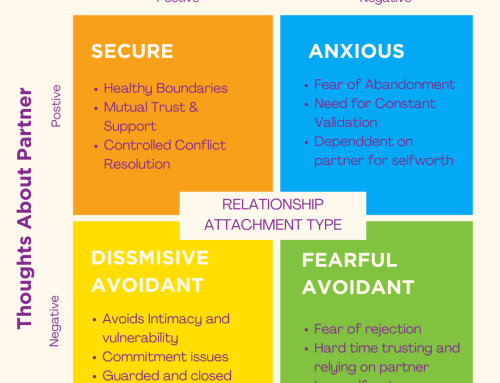School-related stress
What is it about school that means some students appear to glide through the experience and others dread the morning alarm?
The answer is that none of us glide. As many things are, it is an illusion that makes us all feel like we’re the only ones struggling.
School is a constant effort and balance.
Even those that appear to have a wonderful time will, unfortunately, face something uncomfortable at some point, whether at home, in school, or personally. But, there are tactics we can all use ourselves as a child or as parents and carers to help children when stressed.
The first step is letting go of the thought that ‘everyone but me’ is fine.
The formative years (0-8)
These years are sponge-like – where the child’s brain absorbs more learning than at any other age in their life.
Of course, this does not mean that these formative years are without stress, and it’s often the time that any initial difficulties present themselves.
Although a child is born as a blank piece of paper, their story is about to be written and is unique – built up of themselves, other people, culture, experiences, and much more.
Stress factors — tips to try
|
When very young, try sending an item with your usual scent on to nursery/school. Owl mommy is a great book to explain you’re coming back. |
|
Adapt with visual methods and practice at home with similar tasks. Set a strict sleep schedule to ensure your child gets the right amount. Slow-release/low-sugar breakfasts like porridge can help with energy in the morning and concentration. |
|
Remember children learn at different rates and may need tasks broken down. Keep an open dialogue with the school. |
|
Some children need instructions on how to make friends and practice with toys. “Hello, I’m Sarah. What’s your name?” Children will study PSHE where healthy relationships are explained.
|
|
Although bedwetting can be a sign of stress, for some children it simply takes more time. Use a mattress protector to reduce stress, change beds without comment, try ensuring your child sleeps in the dark (or low light) and at regular bedtimes, take them for a wee at midnight, reduce fizzy drink consumption, and consult a doctor/therapist if concerned.
|
At this age, it’s essential to get down to your child’s level and listen to them. Reassure them that you understand and are there to help. It’s easy to get upset or frustrated, but how you deal with these situations when young can lead to how much they confide in you as a teenager.
Remember that as parents and carers we are learning too – don’t be too hard on yourself.
SATs (10-11)
Although children have SATs in key stage one at school, it’s in key stage two when they often show stress about their first tests. Talking to your child to reposition the word ‘test’ can help. For instance, saying it’s like an ‘assessment’ to check if you need help with anything. Also, setting the expectations as ‘trying your best’ and letting you know if there is anything they struggle with takes the pressure off.
Also, many secondary schools re-assess the child when they start in year seven, so it’s not a problem if nerves get to them during SATs. Primary schools often get children ready by using mock assessments before. They also won’t know the actual SATs date – only the week.
Puberty (11 – 16)
It’s easy to forget, but puberty is a big cause of stress for children.
Puberty is the process of children’s bodies beginning the long change into becoming an adult. For girls, this is starting a period, the development of breast tissue, and the formation of hair. For boys, this is hair, voice dropping, and muscular changes. It’s common for children to get spots too, as during these changes, hormones surge through the body.
It’s understandable that body changes at this age can often be a sense of confusion, and that’s why the school will discuss them in PSHE. But you can also discuss these changes with the child and ensure they understand that everyone goes through it. Children can often become very private and stay in their rooms, so keeping communication open is vital.
Morning car journeys and night-time chats can be an ideal time or simply waiting for the subject to crop up. Try to be calm and limit the amount of time discussing it at first – to instil confidence that questions won’t be a lecture. Some people prefer talking and walking without eye contact.
Secondary school (11-16)
Having been in a primary school setting for almost seven years in many cases, secondary school understandably feels like a real leap in confidence. If you consider puberty, friendships, exams, and mix in any challenges at home – you start to understand why it can be tricky.
The answer, as always, is knowing your child and looking out for a behaviour change so you can support them. Children can go quiet or be verbal – they are all signals to talk. By not assuming someone is happy because they’re getting on with it or naughty because they’re angry, we open the door to prevention. And you’re not on your own as the schools and counselling providers like the AoC are trained to help.
It helps to start by asking twice – ‘Are you okay?’ ‘Are you sure you’re okay? Because I’m here to listen if you need me.’
Encouraging exercise and breathing exercises is essential when a child is stressed, as are great sleep routines, good food, and a reduction in phone usage.
Social media can singularly be a source of confusion for children at this age, as can gaming, so actively following their personal accounts and engaging in games can help you to understand their world and protect them.
General stress
Instability at home, trauma and many other events can cause a child to be stressed, and it’s advisable to keep talking to them to see how they are. Schools and therapists are trained to help them to understand what has happened and pave a way forward.
If you or your child need support, call the AoC on 01384 211168 or email support@theaoc.org.uk.





